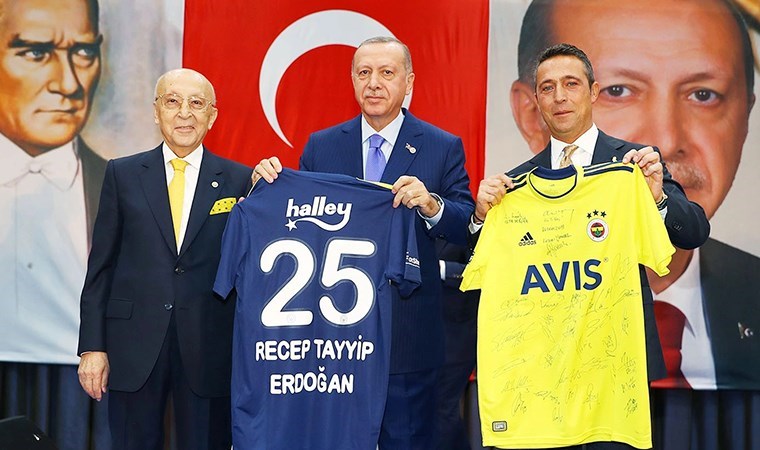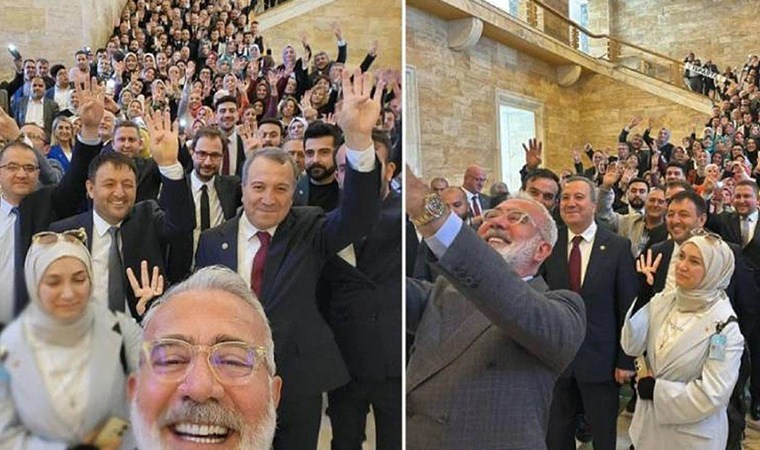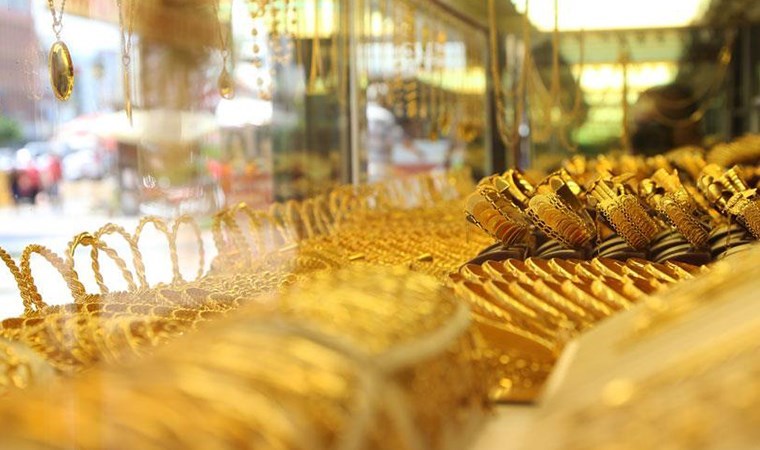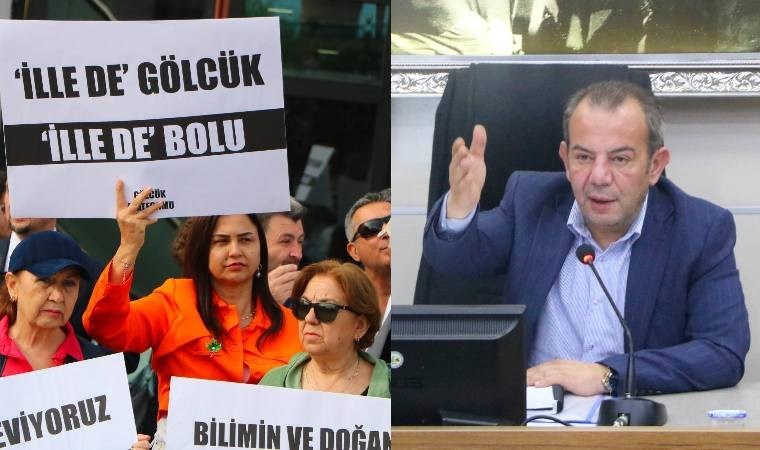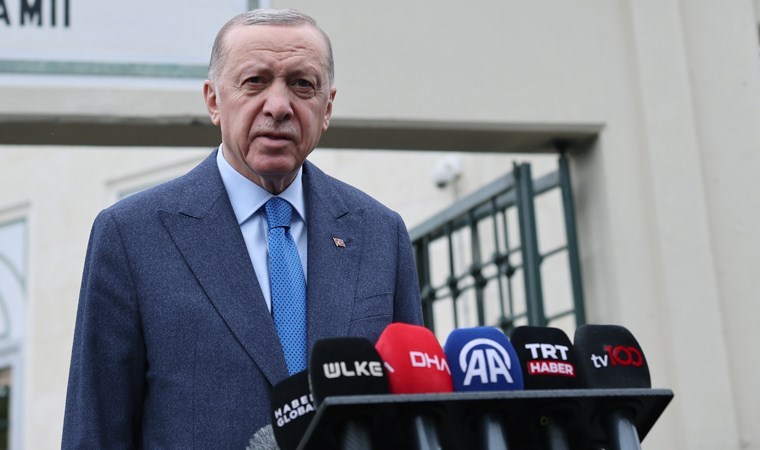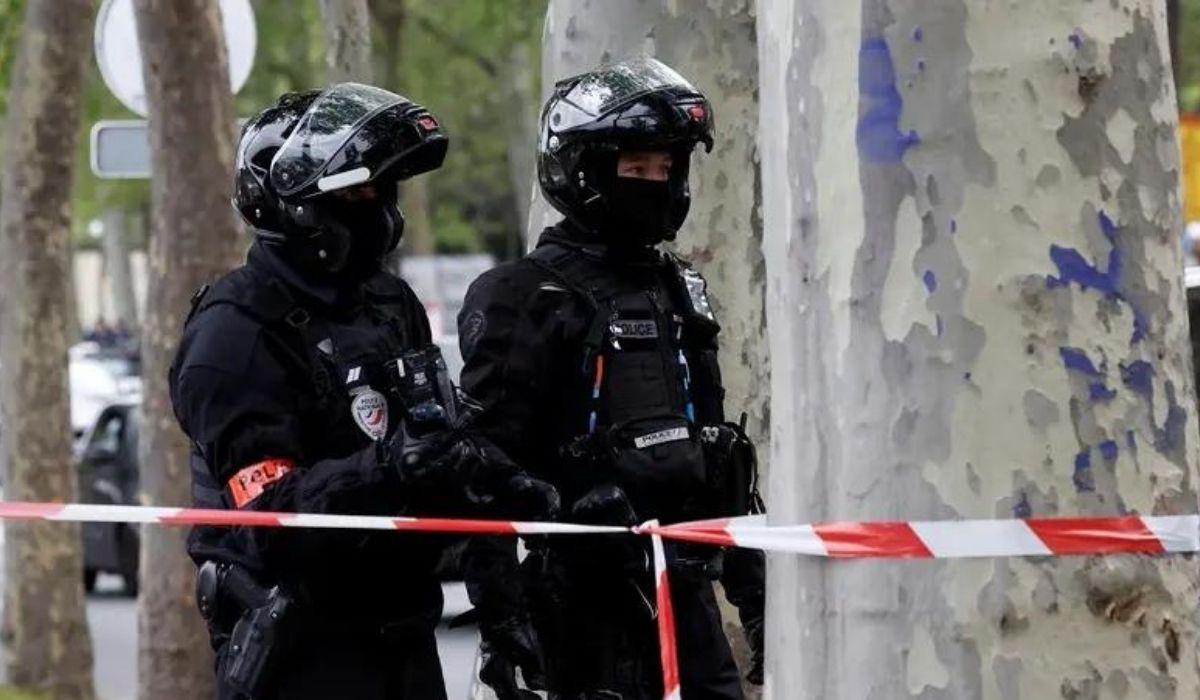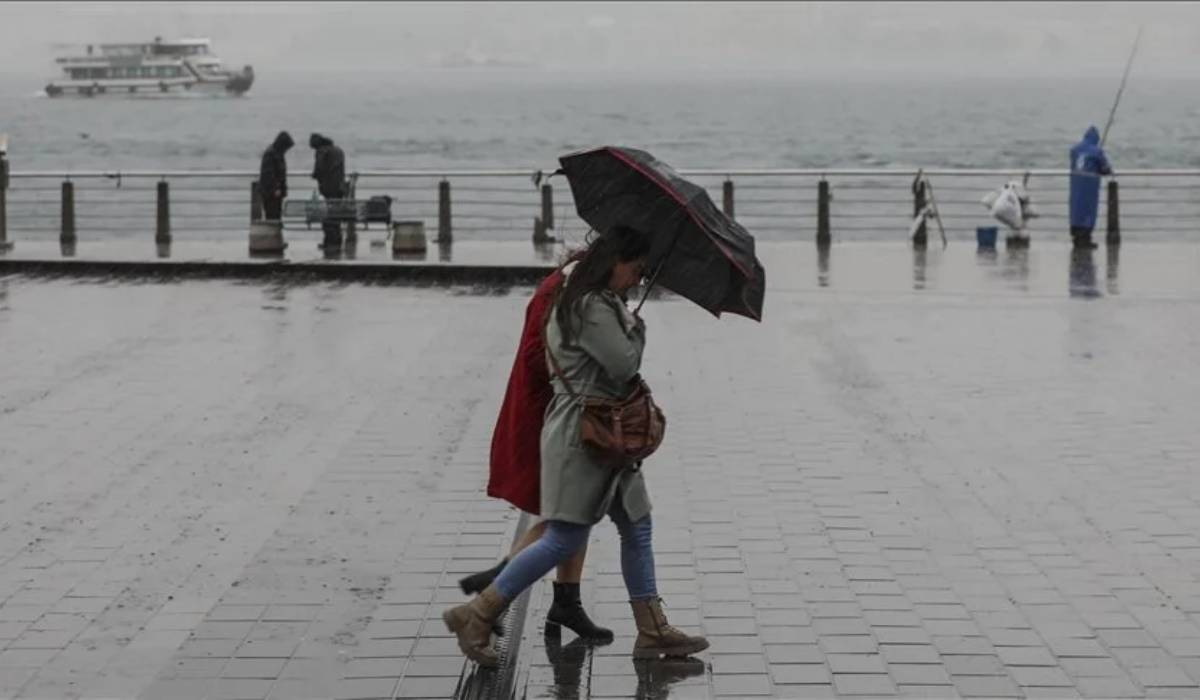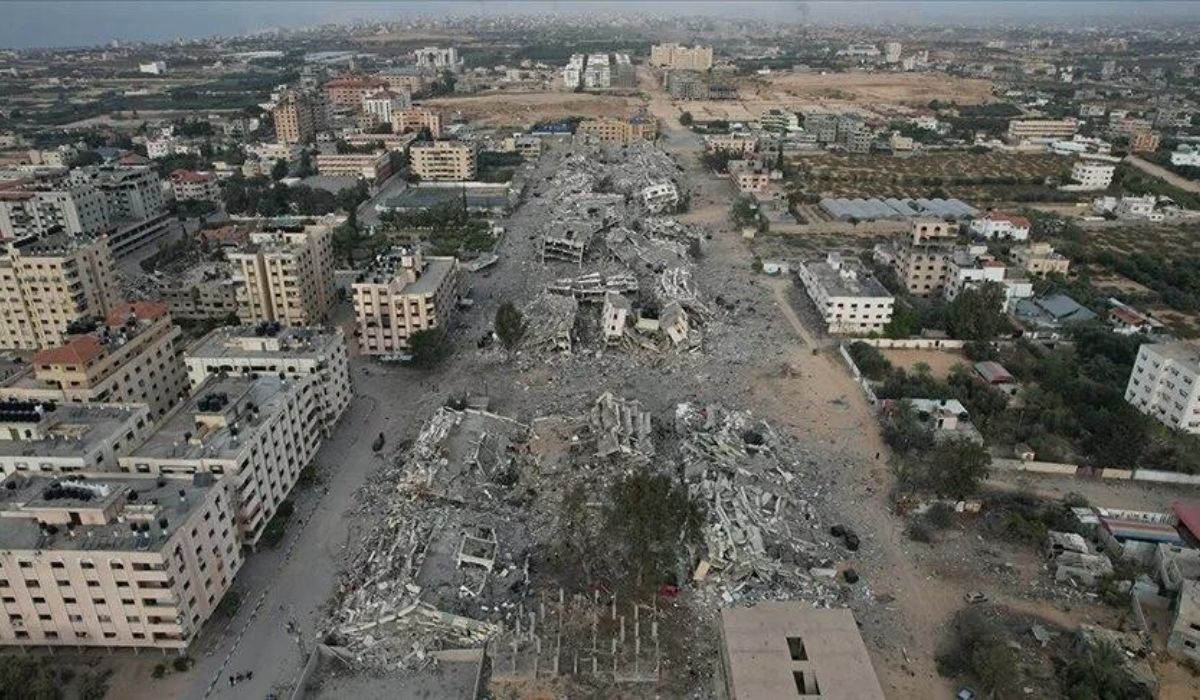In Turkey, we have embarked on a totally new legal order following 15 July.
The following interview by Kemal Göktaş with Assistant Professor Kerem Altıparmak appeared in the Cumhuriyet newspaper on 23 October 2016.
In Turkey, we have embarked on a totally new legal order following 15 July. Do you agree with this and what in your view are the distinctive features of this legal system?
I agree. It is quite apparent that the state of emergency has created a dual legal system in the full sense. In fact, there was previously an assertion that the provisions in the Law on Combatting Terrorism constituted an exception to the penal code and this exception was applied to a specific body of people. This assertion has now been taken a step forward. It is not merely the penal code, but an entire legal system that has been split in two, from the State Civil Servants Law to the appointing of administrators at companies. Even if you wish to sell your property, the extent to which your property right is restricted varies according to whether or not you are under investigation.
In the debate over the presidency, reference is made to the ’de-facto situation‘ with reference to the legal order in the country. What does this mean in legal terms?
The mechanism you call the law amounts to the existing system’s rules being recognised and implemented and sanctions being invoked if they are breached. A constitutional order has thus been created that diverges from the existing constitution in terms of the rules that are to be recognised and applied by way of rules of law and are to invoke sanctions. This is also a kind of law, actually. For as long as you are able to apply these rules, you can speak of a legal order. In fact, in political terms Turkey is quite seriously witnessing the germination of the Second Republic that it spoke of years ago.
The new law is a law that is unwritten, has no review mechanism, has not received the assent of the citizenry and whose legitimacy is questionable...
This is undoubtedly true, but it cannot be said to be entirely without checks.
There are certainly checks in political terms, but there are no legal checks.
There are no legal checks. You shouldn’t perceive the legal system purely in terms of things like rulings passed by courts. We are speaking of something far broader within which we can include, for example, the holding of the inauguration of the academic year at the palace, the rectors going there and being told to their faces that it would be good if there were no further elections. And when you say this, this means you can do it. Essentially, if you examine the matter of universities’ autonomy from within the constitution, this matter may appear to be problematic in its own right. But, of course, if you want to claim that this new legal system constitutes the rule of law, there must be a checking mechanism that is foreseeable and accessible. It is quite apparent that no such thing currently exists. For this reason, what I balk at, far more than the presidential system per se, is this aspect of it. No really serious proposal is in the offering, even from the opposition, as to how the legal safeguard deficit in Turkey can be overcome. This includes the CHP and HDP. For instance, in its work on the Constitution, the CHP was more insistent and demanding on the issue of the Supreme Board of Judges and Prosecutors. But there is an absence of debate as to how the legal system as a whole can be safeguarded and how a system of checks can be developed. The entire debate is over whether a single man is to be executive president. The rule of law could well be placed at the heart of the matter and the presidency denied superiority over it. The Venice Commission’s report is very significant in this respect. It is restricted to using diplomatic language in saying that there remains no sound system of judicial oversight in Turkey and this is what the Commission says in diplomatic language. On translating this into Turkish, we realise that it is saying: You have no legal safeguards in Turkey because you can’t trust the judiciary.
This conclusion brings to mind the Democratic Judiciary Association’s thesis that “There is no judiciary in Turkey” and the book by the same name.
This thesis has found a degree of recognition in international terms. In fact, 15 July hadn’t happened when that book was written. The dismissal and detention of so many judges and prosecutors had yet to come. The Venice Commission included these things in its assessment and was guided towards this conclusion. But, the basic consideration is that if a judge, in passing a decision, declares, “If I rule along those lines I may lose my job or even my freedom,” then no safeguards remain for anybody. For me, this is currently Turkey’s most basic problem.
Well, is this the way it is?
I have not looked into every single case, but the sense I get is, yes, that’s how it is. How comfortable can a judge who has no connection with FETÖ (the Fetullah Gülen Terror Organisation) and Bylock, etc., feel about ruling on a case that will have consequences for the government and especially the president. I mean, how can we conclude that he or she does not run the risk of being branded? There are thousands of pending lawsuits for defaming the president. Is there a guarantee that a judge who says that freedom of expression takes precedence in the matter will not be told, “Look brother, if you say that, you are trying to overthrow the president and that is the organisation’s goal. Given that this is the organisation’s goal, you, too, are working on behalf of the organisation.” It is an act of heroism for the judge to say this. A judge should not have to be a hero; he or she should be just and should apply the available rules correctly. I can say that in Turkey just now the judicial mechanism does not function in this untrammelled way. Of course, regarding the new legal order, we can add that the same applies to all entities that are supposed to be autonomous. To the universities, to the Radio and Television Supreme Council and the Competition Authority ... There is no entity in Turkey that is capable of taking autonomous decisions. In fact, enabling a multiplicity of wills to interact lies at the heart of modern democracy and the rule of law. This new system wants there to be a single will and for everyone to obey it. That’s why the inauguration of both the court and judicial year and of the academic year can be held at that venue, the idea being that they must all say the same thing with no discordant voices.
If we are to have, not a majoritarian, but a pluralist democracy, an important goal is for all components of society to participate in government. But, by destroying all autonomous entities at the institutional level and yielding to a single person’s will, a transition will have been made to a de-facto presidential system.
I think this is the main aim, actually. If you eliminate the system of checks, all that is really left is a single will. I mean, what will the system called the Turkish-style presidential system be like? The legislature and executive will move in tandem on just about all matters. After all, following Abdullah Gül’s presidency, we witness not a single statute being referred to the Constitutional Court.
He only vetoed the match-fixing law.
And that was to be redebated. If you take a hard look at things, there is cause for thinking that such a process has actually been in operation since 2007. There are just a few headache-like entities by way of checking mechanism within the 12 September Constitution itself, even within that bad constitution itself. The judiciary and universities and to an extent the media played this role. Now that role has been entirely eliminated.
The government has always perceived the checking mechanism rooted in the 12 September Constitution as being an extension of military guardianship. Is this really so?
There is a kind of logic to the 12 September Constitution that is expressed in the special status that it gives to the president. The incumbent of the presidency will always be either a soldier or a senior bureaucrat. Whenever he or she thinks that politics has come off the rails, he or she will put things straight through appointments to the judiciary, appointments of rectors and to an extent relations with the media. Of course the military also has a role. Criticism of its guardianship role is partially correct. Because of the points I am making. But, at the same time, this served as the foundation for the system of checks and balances which that mechanism created. With politicians assuming the mantle of presidency in way that was not envisaged, particularly once they were popularly elected, all of these checks were lost. To this we can add the alterations to the Supreme Board of Judges and Prosecutors of 2010. Sure, guardianship is bad but being deprived of checks is not better. If you examine the debate over the presidential system, you will see that there is virtually no debate over checks. There is nothing in this debate as to how a separation of powers and a checking mechanism might be created.
Is Erdoğan not the de-facto executive president? This in fact is Bahçeli’s argument. If the executive presidency enters the Constitution, what will be different from today?
In the first place, I am of the opinion that the people cannot be asked anything in the prevailing circumstances. If you put anything to the people in a setting in which this degree of pressure and censorship is imposed on the press and nobody feels that they have legal safeguards, what gives you the idea that you will obtain a reliable result?
Like in the 1 November elections?
Conditions are far more adverse than on 1 November. This is a period in which it is impossible for the leader of the opposition to speak on television. I mean, if the presidency referendum were to be held now, would the presidency referendum not be Erdoğan’s and Erdoğan’s opponents’ referendum? Under such circumstances, where are Erdoğan’s opponents to make their voices heard? In which media group?
We have colleagues who confess that they can survive in journalism as long as they make general criticism and steer entirely clear of Erdoğan and corruption...
The prevailing environment is clearly one that is not conducive to cogent debate. Twenty-three TV stations and newspapers have been closed and the fate of the others hangs in the balance. In an environment in which a station can be closed at a minister’s say-so under a statutory decree on account of some trifle what environment of democratic debate exists for a referendum to be held? The state of the press is no secret. Neither is the number of journalists who have been made unemployed. Nor is the position the universities find themselves in. I would draw a comparison with the way when the referendum over 12 September was held people did not freely express their intentions when voting on the 12 September Constitution because the ‘yes-no’ vote was visible from outside the envelopes. This is the kind of envelope we have today. Most probably, the contents of today’s envelope will not be visible, but there will be no need for this. I can well imagine the kind of pro-presidential propaganda I will be subjected to when the presidential system is submitted to a referendum and suspect that scarcely a single word uttered in opposition to it will be audible. Apart from one or two pronouncements from the periphery by Kılıçdaroğlu ... This amounts precisely to the interior of the envelope being visible.
Do you think it’s possible for a ‘no’ to emerge from the referendum?
It would be a massive surprise. They’re holding it because they know this, anyway. Especially if they do so having obtained the MHP’s support.
Let’s return to the question of what would change?
Good heavens, I don’t want to say a great deal about what the next step would then be in Turkey. It’s hard to contemplate what else there could be. They most probably have something in mind that hasn’t occurred to us. But it would be more extreme than what we have under the current situation, and that will be unchecked. From then on, probably various matters that are debated in parliament will be debated at the palace itself. Decisions will be taken within commissions of ten to fifteen people acting as consultants. The end result will be that opposition in any guise will be denied the opportunity to exist.
There’s one aspect of the presidential system that needs to be considered. This is that the left-wing vote in Turkey is in the 35-40 percent range, and, on the other side, there’s a vote in the 60-65 percent range that we cannot call the centre right but is for two parties that are nationalist and Islamist. If the vote continues to stack up like this, once the presidential system is installed, the left in Turkey will probably be permanently denied the opportunity of participating in politics, even as a coalition partner or through parliamentary activities. Can it be that those who are pushing for a presidential system are striving for a country in which the left is eliminated from politics?
That’s what they’re striving for, actually. For example, the education system is also being structured with this in mind. I’m not even sure that this 35-40 situation will exist in ten years’ time, because the education system being forged in the schools will have a lasting impact on society that will reduce the left’s share of the vote further. Or, at the very least, it will bring about a shift so that some of those outside the 60-65 percent enter this category. Of course, the upshot will be that this part of the political spectrum will be deprived for good of the right to express itself in political terms. It will be forced to endure oppression at all times and in all places. This doesn’t mean there can be no dealings or negotiations or no demands for the protection of certain of their rights. For example, look at the protracted struggle to secure recognition of cemevis as places of worship. That’s because it’s at the beck and call of those who wield power.
Above all else, with there being an ECHR ruling.
It will be an extremely institutionalised version. That’s why the checking system in the 12 September Constitution, the checking system known as the guardianship system, acts as a restraint. In fact, mention of the presidential system conjures up the image of unrestrained, unchecked absolute power for me. Otherwise, this is more important than whether X or Y will be president. Tayyip Erdoğan can be either president or head of state. But, if there is a good checking system, then his being a charismatic leader does not on its own make everything really bad. But, in a setting in which there is absolutely no checking system, if somebody else comes to replace him, they will also refuse to permit pluralism.
We don’t hear a great deal of political criticism from Europe but serious criticism is forthcoming from judicial bodes. What is the significance of the Vienna Commission report and the Council of Europe Commissioner for Human Rights’ memorandum? What do these bodies represent and what is the significance of these warnings for Turkey?
One prong of the international human rights system is undergoing serious weakening, but another of its prongs has a powerful institutionalised footing. Now, from what I gather, the government has obtained a strong green light from the West. Come what may, no serious criticism is forthcoming from the EU or Western governments. The President nevertheless comes out with West-baiting comments, but note the absence for the past month of one of those classical proclamations that “We feel concern” from the EU. This is how things stand in political terms.
Why is this so? Do you connect it with the refugee crisis? Or are there other parameters?
I’m sure there are. I don’t think it only has to do with the refugee crisis. There are a whole host of other factors such as an increasing trend towards authoritarianism in Europe, the weakening of the EU and the UK leaving the EU and constantly hitting out at European institutions. Then, of course, I have no idea what is being said behind closed doors in political terms. But they appear to be turning a blind eye and making no demands over even the most serious allegations. I am sure the government is delighted with Europe’s overall attitude. At the same time, the separation of powers and autonomous entities we discussed a while back also exist within human rights mechanisms. I think that the pressure these will bring to bear will at some stage force an end to this political silence. This is precisely how the Venice Commission report and the Commissioner for Human Rights’ memorandum must be interpreted. The memorandum has ten pages but it sets out the problems very clearly and cogently. It also invites the government to act on these problems. The Venice Commission report is about immunity and we know how much importance the president attaches to this. The Venice Commission says both that the constitutional amendment, that is the constitutional amendment to lift immunity covering crimes in certain periods, is politically motivated and that this political motive is to strike a blow at a political party and, on top of this, that the events under investigation constitute the exercise of freedom of expression. It says the government has distorted the issue by alluding to its fight against terror and crime and calls on the amendment to be reversed. But it says another second important thing. It could recommend the lifting of immunity over extraparliamentary activities in another country in view of the issues this might raise over equality between members of parliament and other citizens. But Turkey lacks a judicial system that furnishes legal safeguards. So, it cannot recommend this in Turkey. There thus need to be robust arrangements for members of parliament’s immunity both within and outside parliament, because they have no guarantee that they will not be prosecuted. It actually said this in reiteration of the concerns of GRECO (Group of States against Corruption established by the Council of Europe) over judicial independence in Turkey in its report into corruption and said that the situation has become more grave following the detentions and dismissals of judges and prosecutors after 15 July. European Court of Human Rights rulings may well come in the wake of this.
There is word of close to a thousand files awaiting referral to the ECHR. There may well be many more. There are the dismissals, suspensions and more than thirty thousand detentions. Each person may have more than one file. What is the ECHR to do?
Well, initially, various scenarios come to mind. The realistic scenario is that come what may the ECHR will be unable to hear them. This must be said emphatically. The ECHR has 47 judges and at a push issues two thousand rulings on the merits in a year. Contemplating the kind of figures you’re speaking of, it can’t cope with them. There are mass applications among those two thousand rulings but the only solution that will keep the ECHR and this system functioning will be for rulings issued by the ECHR to be applied in internal law and for a solution compatible with this to be created. I thus think that the ECHR is faced with two alternatives. One option, even if in my view it is somewhat legally opaque, is that of creating a procedural bar. I do not think there is an effective means of redress in Turkey against these infringements here. This is also borne out by the stance manifestly adopted by the Constitutional Court.
There has also been a dismissal by the administrative court.
I have my serious doubts about the judiciary in Turkey taking on an independent and impartial form. And I think there is hard evidence to support this. The ECHR could establish a formula whereby you have to exhaust these means first. This could lead to very deleterious consequences because a process of this nature lasts up to ten years. You get a denial from the administrative judiciary, so you go to the Constitutional Court and from there you go to the ECHR, etc. In any case, once people’s lives have been ruined, whatever ruling ensues will be of no avail.
The second possibility is that, from among the applications made to the ECHR ... and here you must separate the dismissals from the instances of detention and the other allegations of torture. Into separate piles. Look at them with an indicative ruling in mind. If they are deemed admissible, it can pass an indicative ruling on at least one of them or a batch of them. It can indicate to the government how the remainder are to be disposed of in keeping with the convention. In such case, especially with regard to the dismissals, the government must establish a mechanism for making a fair examination. How this can be done and whether there exists the potential for this is a matter that must be addressed at that time.
Perhaps, in this connection, regardless of the issue facing us, mention must be made of the existence of foreign examples. No sooner had the state of emergency been proclaimed than the example of France was cited. The commissioner has a very stark response to this in his memorandum. He says the state of emergency in France bears no relation to ours because mechanisms to protect the rule of law remain in place there. There were no closures of vast numbers of newspapers and TV stations, nor so many dismissals. Events there did not escape his criticism, either, but there is a well-functioning ombudsman and judicial system there. The problem at our end is much more profound because incursions against basic rights and freedoms abound but there are no functional safeguards in this area. Then, in connection with this, another example is given. They talk of East Germany and West Germany uniting and tell us to go there and take a look. This is actually a matter on which Germany’s records are not conclusive but it is certainly not an analogous situation. When East and West united, essentially everyone who worked in the Eastern state was part of the East German communist regime. Then there are the numbers involved. There is mention of 500,000 people. This is not correct. But, more importantly, the ECHR has criteria governing lustration (I think a similar name will be given to the procedures conducted in our country) in various countries over the 2000’s and stretching into the 2010’s and the Parliamentary Assembly of the Council of Europe adopted a recommendatory resolution as to the safeguards that must be observed within lustration.
What does it say in this resolution?
The PACE has a text dated 1996 concerning lustration in Eastern Europe. We see it being adopted more or less verbatim by both the Venice Commission and the ECHR. The ECHR consequently always detects a breach in applications of this nature if those standards are not met. That standard dictates that people cannot be expelled simply for membership of an association or such like without hearing anybody’s defence. In fact, the ECHR regards lustration in Poland as being a penal law sanction and so it declares that this procedure can only be conducted under the safeguards applicable to penal proceedings. I am of the opinion that this is also the case in Turkey.
What do these standards entail?
You will adduce evidence, give the right of defence and if in the meantime you object to that person holding a post in the public service, you may suspend them. It is abundantly clear and apparent that this bears not the slightest relation to the Venice Commission and PACE standards by which Turkey is bound.
There was a coup attempt on 15 July. In other words, there is the fact of the coup. I think we need to ask how this lustration needs to be carried out. Or, are we to oppose lustration?
Lustration is of people themselves; if you carry out lustration you are branding these people as terrorists. It tells people they were adjunctive to or associated with or had membership of or involvement in a terror organisation. This amounts to a process in which accusations are levelled against a person and they are convicted. Who is to do this and where? Nobody has a clue about this. The Council of Europe texts establish rules not for lustration but the lustration procedure. If Turkey feels the need for a speedy process, following the suspensions, there must be speedy debate as to how a fair mechanism is to be established and it must set out how it is going to do this in parliament in the form of a statute. The entirety of these relationships must be laid bare in a transparent and visible manner. Were it to do this, it would circumvent the debate. There are certain people who evade detection, the embedded people. How do you get round this? You do so with transparent, fair trials. This would enable their networks within the political parties, judiciary and military to be unearthed. If action is really to be taken against the Gulenists, this is the correct method - not just to prevent people from suffering injustice, but also to enable the Gulenists to be unmasked. I know of no just result in the world in which there is a decision to convict without holding a fair trial. The principles of a fair trial are precious, not because this is what the Constitution says, but because they are principles that have stood the test of time.
You are recommending a method that will ease social tension.
This would enable something else. There is nobody on the right in Turkey whose paths have not crossed with the Gulenists. Now, of these people, whoever you throw out based on some decision or other, the rest will remain in place. The criteria whereby this is done would then acquire certainty. For example, take this thing called adjunctiveness – I am a jurist, a public-law jurist and I have a good grounding in basic rights, and I am not familiar with this thing called adjunctiveness. If anybody is, let them step forward.
But it’s described as ‘standing alongside’
Penal law involves foreseeable rules. OK, why are others not considered to have stood alongside then? Some who are thrown out did, so did the others keep their distance?
If you exceed certain limits in defining offences, this means that, as you delineate, you breach basic rights and freedoms, the Constitution and ECHR rulings. For example, wishing for mother-tongue education is not tantamount to defending violence just because this is what the guerrillas want. You must prove the existence of this chain of causality.
This is one of the main things that is obstructing the channels of democratic politics.
It could well be said that you are adjunctive to these organisations whenever you disagree with those who wield political power, in that the former also criticise. For example, do you express opposition to the presidential system? So do the organisations. The President calls for their lustration. Surely such things are detrimental to the rule of law. If you are to conduct this legitimate act, you must do so with legitimate means. Legitimate means have no alternative definition. That is, there is no formula B. Under the rule of law, you must do this with mechanisms that respect the supremacy of the law and in which you have vouched for your impartiality. Five administrators at the President’s office dismiss 50,000 people at the single stroke of a pen. How can you defend this to anyone?
There could be collateral damage, couldn’t there?
They say mistakes happen. There may also be mistakes within the judicial mechanisms we are speaking of but there is nothing like the same kind of percentage. As things stand, lawyers are unable to see detainees’ files, let alone the stuff to do with dismissal from public service. There is the example of Atilla Taş. The judge, in ordering the continuation of detention, is reported to have ruled “with reference to his social media posts and past work record.” I don’t understand what is supposed to be confidential about that. The man has 1.6 million followers on social media. Given that this is the evidence backing up your allegation of guilt, the file is hardly confidential so at least come out with it. Say that you are ordering the continuation of detention because of this or that tweet. The way it’s being done, there’s an inevitable sense of injustice around what you are targeting in the prosecutions. Before long, empathy will emerge for the entity you are combatting.
It is said that talk of people suffering injustice is a ‘stunt’ and those who do this are serving FETÖ. And this places jurists, activists and journalists in a very difficult position.
On the contrary, if you create injustice, you may end up bolstering that organisation. I cannot automatically counter a person who alleges to have suffered injustice with the claim that they are from FETÖ and got what they deserved, because I don’t know. They speak out and say they’re not. How do you know that this won’t happen to me or you tomorrow or the day after? When I say, “I’m not” the chances are I’ll get treated in the same way. That’s why we must set out from the presumption of innocence, regardless of whether it’s a judge or a soldier. But there’s evidence out there. I mean, so much surveillance went on. Given that they suspended so many people in the aftermath of 15 July, they have got to have evidence. If they see to it that this evidence comes into the open in fair trials, this will expose other networks. So many judges and prosecutors managed to enter the judicial machinery. Are we to expel them and not subject the remainder to any examination? We know about the Gulenists’s strength in the judiciary in Turkey but we do not know how this was possible. You can’t wriggle out of this by saying, “Such things were going on in Bülent Ecevit’s time.” Was the AKP aware of the Gulenists’ strength in 2010? Did they not know how the Gulenists took over the judiciary after 2010?
They know but they didn’t think any harm would come from people who bow down in prayer.
But it is scarcely plausible that a community making up a tiny portion of Turkey’s population achieved such success within the judiciary by dint of being of high merit and excelling in exams. Will none of those who turned a blind eye be held to account in legal and administrative terms?
Assistant professor, what’s going to happen then? We’re not very hopeful as far as the judicial system goes. You do not hold out much hope from the ECHR system...
I’m not cautioning against all hope but what I’m driving at is we shouldn’t exaggerate the potential they offer. Above all else, we must draw hope from something. The existing state structure is in a serious state of collapse. Something will be erected in its place sooner or later and nothing erected on injustice will last long. Perhaps hope is to be sought in precisely the demands to be raised over this and the politicisation of this. Of course, I really cannot foresee what the next step is going to be. As I said at the very outset, I see the creation of an effective checking mechanism lying at the heart of the matter. It thus appears to me that salvation may come from taking politics into fresh fields away from debating the ‘presidential system’ and ‘Tayyip Erdoğan or not‘. If something like the rejection of an executive presidency is to be touted, this will also have to be addressed along such a path because proponents of an executive presidency are proposing a system with no checks. They call for a presidency unbridled by anything, not even the judiciary. A case of, “L’etat c’est moi.”
You are also known for the cases you have brought over our internet freedoms and you have secured many positive decisions. Are there documented examples of people with an academic background doing such things? After all, you don’t come across this every day. Academics in Turkey create academic knowledge and don’t get greatly involved in its practical implementation.
There are not a great many examples in Turkey of the kind of thing Yaman Akdeniz and I have done. But one of my colleagues working in the field of human rights has coined the term ‘pract-academic’ for this phenomenon. This refers to the attempt to meet needs arising in practice with our academic knowledge. What distinguishes this from normal practice? In the case of jurists studying human rights, practice for them takes the form of human rights cases. This is our laboratory. Where we differ from lawyers is that a lawyer’s priority is the client’s interest. Indeed, he may have to do certain things that he doesn’t particularly believe in. We wish to realise certain things that we consider to be theoretically correct, and so try to devote our academic knowledge to that end. Thus, rather than waiting for somebody to come and knock at our door, we ourselves set the ball rolling. For the most part, the applications we have made are applications made on both of our behalves.
So you apply as consumers – users.
For a long time we have asserted that freedom of expression belongs above all to the user. For example, we have now taken the closure of the Özgür Gündem newspaper to the Constitutional Court. Our efforts are not limited to the internet alone. As far as freedom of expression is concerned, we posit that freedom of expression as far as Tolstoy’s works is concerned did not end with Tolstoy’s death. When I am unable to read Tolstoy’s books, my freedom of expression is infringed on. Another aspect of pract-academics is that access to information is of paramount importance to an academic and I actually think that in these terms we are defending the honour of the academic world. It is also impossible to unearth the truth wherever accessing information is forbidden. There are examples from elsewhere from among human rights workers.
Özgür Gündem was closed on the allegation of being a terror organisation’s mouthpiece and this has not attracted much debate in the prevailing atmosphere. There are those who ask, “Is the mouthpiece of a terror organisation not to be closed?” What human rights issue do you feel to be involved in this case?
If a publication publishes material that invites scrutiny under anti-terror measures, it is scarcely possible for it to escape sanction. You’re going to apply the appropriate sanction to that story or article. This is not what I’m saying. The ECHR says in the Ürper v. Turkey case that if you detect a breach of the law by a publication, you can penalise it for that article but you cannot ban subsequent publications.
It also says in the Constitution that censorship is forbidden.
The remedy of temporary closure is contained in the Constitution, but it has no statutorily defined counterpart. And it is unclear how long Özgür Gündem has been closed for. They say it’s temporary but it will probably remain permanent and there is one problem. Even the Constitution – that unimplemented provision of the constitution - speaks of closure in the event of conviction. However, in the order on Özgür Gündem the investigation being conducted into it is cited as the grounds for closure. There is arguably a bias towards the guerrillas in Özgür Gündem’s coverage but it has accomplished other very important things. We learned of this thanks to the study that Gülden Gürsoy Ataman conducted at the Ankara Faculty of Communication.
It examines newspapers’ performance over the 90’s in relation to five grave human rights’ violations adjudicated by the ECHR. Of the 28 reports into the issues made in the Turkish media, Özgür Gündem made 24 of them. On top of this, three of the five stories were carried by Özgür Gündem alone. These include a rape at a police station, the bombing of Kuşkonar village and instances of missing people. Were it not for Özgür Gündem there is no way that these things would have been reported. Look at the current state of the media. They’ve closed IMC, Hayatın Sesi TV and Özgür Gündem. Who’s going to report human rights’ violations in Turkey? The Hürriyet newspaper?
There’s Cumhuriyet.
Well, they’re gunning for you, too. You need to adopt the following approach to Özgür Gündem. This is also the argument we have taken to the Constitutional Court. We say there are reports you can see in Özgür Gündem that you have no chance of seeing elsewhere. This is because Özgür Gündem, thanks to its connections with people in the region and the way its reporting remains uninfluenced by state coercion, can report events that other media outlets do not cover. In addition to this, the Dicle News Agency and the Fırat New Agency and the sendika.org and siyasihaber.org sites are blocked. Putting all of these things together, how can I be expected to make sense of these events as a citizen?
Even Cumhuriyet’s reporting of the basketball federation election was banned.
The penal courts of the peace play two critical roles here. The first of these is censorship of the corruption allegations. Politicians and businesspeople have ensured that all reporting of the 17-25 December corruption allegations is barred on the grounds of breach of their personal rights under Article 9 that has been appended to Law number 5651. If you search, you will be unable to find a great many stories.
Memory of the 17-25 news has been wiped out, you mean?
Precisely. A judge blocks more than a hundred addresses at a single stroke. I have not encountered a single instance in which requests of this nature have been denied. There is no ruling saying, “No, brother, there is freedom of expression here.”
So, not even one of them questions the legitimacy of the application?
Not one. The second of these is that the law permits preventative measure orders to be proposed in relation to matters such as preventing the commission of crimes, preventing disruption to public order and national security. The President’s Office sends a list to the Information and Communication Technologies Authority along with the request that the accompanying addresses be blocked. The Information and Communication Technologies Authority approves this list – without removing a single address from the list containing 93 applications - and remits it to Gölbaşı Penal Court of the Peace. The judge there blocks around four thousand addresses in their entirety without removing even a single address.
Once again, not a single one of them is denied?
No, not even one is denied. We don’t hear: “The application is correct for 99 of them but one is wrong.” We have objected to a significant portion of these. Penal court of the peace judges have dismissed our objections without exception in one-line decisions on the grounds that, “The decision accorded with procedure and the law.” We have taken them all to the Constitutional Court. And the Constitutional Court has shelved them. I have no idea when they will finally come down from the shelf. For as long as the state of emergency continues, I don’t suppose they will.
Look, if there were to be a single intermediary decision maker who broke the cycle, the whole thing would collapse. But when it is binding on the entire mechanism there is no functioning system of checks. If that chain were just to be broken, press freedom and freedom of expression would cease to be an issue. But, since nobody - not even at the Constitutional Court - breaks the chain, this doesn’t happen. The Constitutional Court is still holding up the application for the cancellation of the internal security law.

En Çok Okunan Haberler
-
 Erdoğan ‘Kent Lokantası’na inanmadı
Erdoğan ‘Kent Lokantası’na inanmadı
-
 Saldırı sonrası İran'dan ilk açıklama
Saldırı sonrası İran'dan ilk açıklama
-
 'Ben artık Fenerbahçeli değilim'
'Ben artık Fenerbahçeli değilim'
-
 AKP'de 'Rolex' kazası: Paylaştı, sildi
AKP'de 'Rolex' kazası: Paylaştı, sildi
-
 Altından yeni rekor!
Altından yeni rekor!
-
 Karaköy sahiline havuz!
Karaköy sahiline havuz!
-
 'Bu akşam geç geleceğim eve'
'Bu akşam geç geleceğim eve'
-
 İzmir'de deprem!
İzmir'de deprem!
-
 Özel, çantası dolu gidecek!
Özel, çantası dolu gidecek!
-
 Erdoğan’dan flaş İsrail-İran açıklaması
Erdoğan’dan flaş İsrail-İran açıklaması


